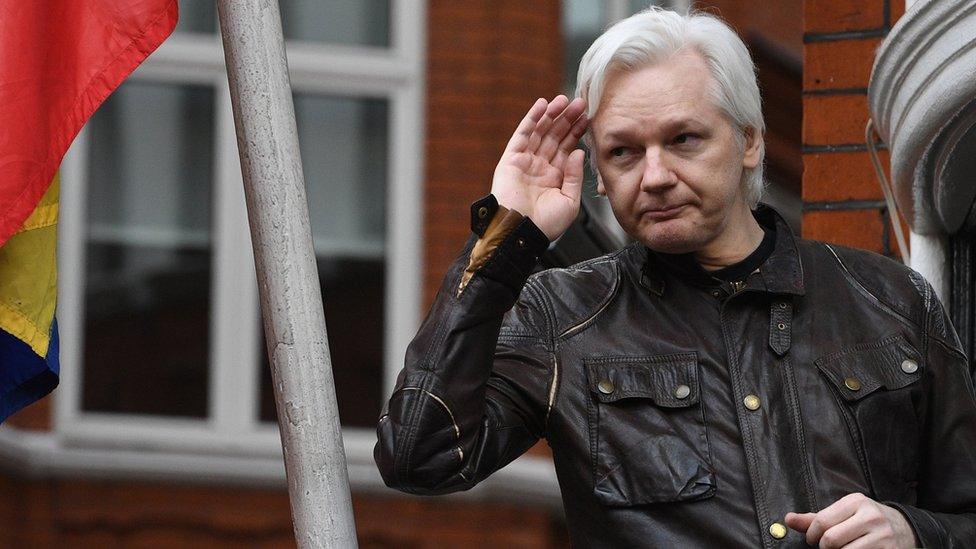Julian Assange has internet cut at Ecuadorean embassy in London
- Published

Mr Assange has been holed up at the Ecuadorian embassy since 2012
Ecuador has cut Julian Assange's internet connection at its embassy in London, preventing him from communicating with the outside world.
The move is to prevent the WikiLeaks founder from interfering in other countries' affairs, Ecuador said.
It comes after Mr Assange questioned accusations that Moscow was responsible for the poisoning of a Russian ex-spy and his daughter in the UK on 4 March.
Mr Assange was granted political asylum at the Ecuadorean embassy in 2012.
He was initially staying in London to avoid extradition to Sweden to face questioning over allegations of sex crimes, which the 46-year-old has always denied.
The Swedish authorities have since dropped their investigation, but Mr Assange believes he will be extradited to the US for questioning over the activities of WikiLeaks if he leaves the building.
On Monday, Mr Assange used Twitter to question the decision by the UK and more than 20 other countries to retaliate against a nerve agent attack on Sergei Skripal and his daughter Yulia in the UK city of Salisbury by expelling Russian diplomats.
Allow Twitter content?
This article contains content provided by Twitter. We ask for your permission before anything is loaded, as they may be using cookies and other technologies. You may want to read and before accepting. To view this content choose āaccept and continueā.
UK Foreign Office minister Alan Duncan responded to his comments by branding the Australian a "miserable little worm" who needs to turn himself over to authorities.
In 2016, Ecuador briefly suspended Mr Assange's internet connection after he published hacked emails from the campaign team of Hillary Clinton, a move seen as having an impact on the US presidential election campaign.
In May 2017, Ecuadorean President LenĆn Moreno asked Mr Assange to refrain from expressing his public support for the independence campaign in Spain's Catalonia region after he tweeted that Madrid was guilty of "repression".
Mr Assange was granted asylum by President Moreno's predecessor, Rafael Correa.
Mr Moreno's government has said it will maintain Mr Assange's asylum. But it has also sought ways for him to leave the embassy without risking arrest for breaching his bail conditions, and possible extradition to the US over the 2010 publication of classified information by WikiLeaks.
- Published24 February 2018
- Published13 February 2018
- Published25 June
- Published31 March 2017